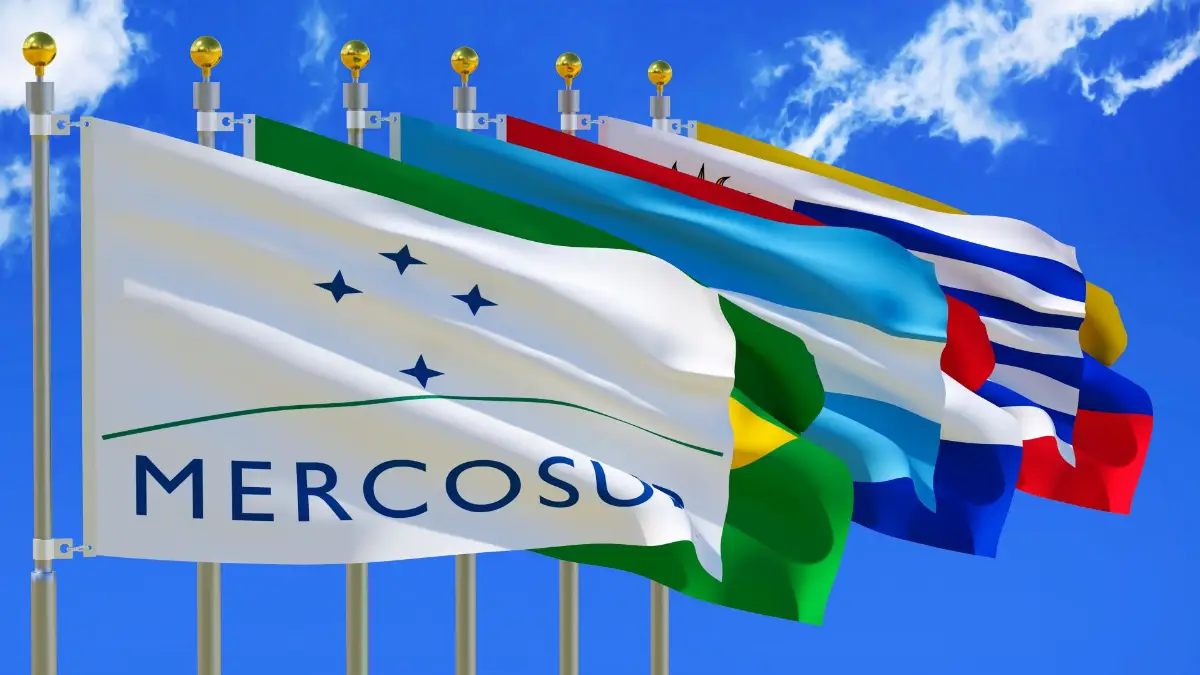
Copa Cogeca calls Mercosur a "betrayal" for farmers.
European organizations raise a 'strong and united' voice against food safety risks

The EU-Mercosur agreement betrays European farmers, workers, consumers, and the environment. This is according to the official statement from Copa and Cogeca, which states: "While the Commission continues to promote the EU-Mercosur agreement, the EU's leading agri-food organizations, along with environmental and workers' rights advocates, are once again raising a strong and united voice against the serious risks the agreement poses to food safety, environmental objectives, animal welfare, labor standards, and the livelihoods of EU farmers."
The EU-Mercosur agreement, says Copa Cogeca, "risks allowing unsustainable duty-free imports of rice, poultry, beef, sugar, corn, and ethanol, much of which is produced to significantly lower standards than those required in the EU."
This, according to European farmers' organizations, "raises serious concerns about environmental and social dumping, as Mercosur producers often operate without the same rigorous guarantees regarding labor standards, deforestation, pesticide use (for example, over 30 active substances approved for use in sugarcane in Brazil have been banned for use in sugar beet in the EU, and 52% of substances authorized for use on corn are not present in the EU), sustainable land management, and carbon emissions, all of which EU farmers must comply with."
The agreement's sustainability provisions, the statement continues, "are neither binding nor sufficient to prevent negative impacts on health, the environment, and jobs, leaving farmers and the EU economy exposed to unfair competition."
The economic pressure and falling prices on EU producers are already evident, Copa Cogeca argues, "with a third of EU poultry imports (both in quantity and value) already coming from Mercosur countries and increasing volumes of beef, sugar, corn, honey and ethanol poised to enter the EU market."
"The lack of reciprocity in production standards and costs," the statement continues, "combined with market deregulation, further exacerbates this imbalance, creating an uneven playing field that risks causing job losses and farm and factory closures across Europe."
"This agreement," the statement adds, "would also undermine consumer confidence in European food products, further destabilize markets, and undermine the high standards that characterize EU agriculture. The cumulative impact of this agreement will only exacerbate existing pressures. Any additional imports for sensitive sectors will further undermine the sustainability of the EU, the livelihoods of farmers, and their very survival."
Similarly, Copa Cogeca argues, "animal welfare standards in Mercosur countries are far lower than the rigorous protections applied in the EU, creating an ethical imbalance that undermines the high-welfare practices advocated by European producers."
There are also health risks, Copa and Cogeca emphasize. "For example, recent audits by DG SANTE reveal deficiencies in avian influenza surveillance in Brazil, a potential underestimation of outbreaks, and the use of prohibited chemical decontamination methods (e.g., chlorine-washed poultry)."
Concerns also arise from the lack of complete traceability in some Mercosur countries, "which is particularly problematic for beef imports, as it prevents any certainty about the true origin of the animals and whether production is linked to deforested areas. Furthermore, the risks of labor exploitation are heightened due to the weaker labor protections in Mercosur countries."
Despite ratifying the relevant conventions, the statement adds, Mercosur countries report violations of the ILO's core conventions on the abolition of forced/slave labor and child labor. Furthermore, according to the ITUC Global Rights Index, all Mercosur countries, with the exception of Uruguay, regularly violate workers' rights, particularly the right to freedom of association, the right to collective bargaining, and the right to strike.
The most recently added safeguard measures, the statement emphasizes, are nothing more than a communication tool to sell the agreement. The so-called safeguard clause lacks practical relevance, failing to provide protection against structural market imbalances and unfair competition. The agreement also falsely claims to guarantee environmental, labor, and deforestation protection, as its so-called clauses are unenforceable and lack sanctioning mechanisms to ensure compliance.
"As a result, tens of thousands of hectares of land remain at risk of deforestation every year."
"This agreement remains unacceptable," the statement concludes. "A betrayal of farmers, workers, and consumers, compounded by questionable democratic and judicial procedures. What we need are coherent policies that uphold the EU's sovereignty and sustainability, and transparent and fair trade."
EFA News - European Food Agency